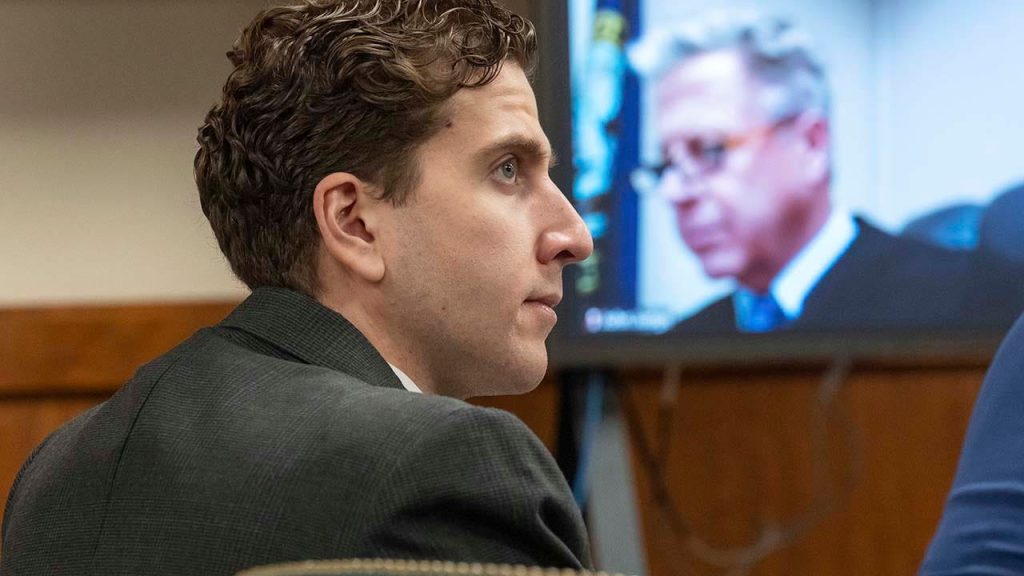Bryan Kohberger, who is accused of killing four University of Idaho students in 2022, appeared in court for a pre-trial hearing where his defense questioned Moscow Police Department detectives about the mishandling of phone records linked to his alibi. Detective Lawrence Mowery testified about the investigation, admitting that he did not save files from Kohberger’s cellphone on the night of the murders but claimed he could replicate the missing data. Prosecutors argued that Kohberger’s alibi, filed over a year after the murders, was too vague. Kohberger’s defense team accused prosecutors of withholding evidence, which allegedly includes dashcam footage, cellphone tower data, and recordings of a white sedan near the crime scene.
Investigators claim to have phone pings placing Kohberger near the house on the day of the murders, but his defense argues that he was not at the scene. A probable cause affidavit states that police found Kohberger’s DNA on a knife sheath under one of the victim’s bodies. His attorneys suggested that the DNA could have been planted and accused the state of mishandling evidence. Investigators reportedly confirmed a match with a DNA sample obtained from distant relatives. Prosecutors have also criticized Kohberger’s alibi for being overly vague, stating that aside from a reference to Wawawai Park, he only claimed to be driving around without providing specific details.
The prosecution alleges that Kohberger, identified as the masked man who entered a house near the University of Idaho campus, is responsible for the murders. The following morning, police found four deceased undergraduate students inside the house. Kohberger, a Ph.D. student in criminology at Washington State University, faces four charges of first-degree murder and a burglary count. He is currently being held without bail, and not guilty pleas were entered on his behalf at his arraignment. If convicted, he could face the death penalty. The court did not make a ruling during the recent hearings, with the next session scheduled for May 30, where additional witnesses are expected to testify.
The defense has raised questions about the handling of evidence in Kohberger’s case, including the alleged mishandling of phone records and DNA evidence. They have accused prosecutors of withholding crucial information, such as dashcam footage and cellphone tower data. The defense has also suggested that the DNA found at the scene may have been planted. Prosecutors have criticized Kohberger’s alibi as being too vague, with one filing stating that he provided little information beyond driving around and looking at the moon and stars on the night of the murders.
The case against Kohberger revolves around allegations that he was the masked man who entered a house near the University of Idaho campus, resulting in the deaths of four students. The prosecution claims to have evidence linking Kohberger to the crime scene, including phone pings and DNA samples. Despite the defense’s efforts to challenge the evidence and raise questions about the handling of the case, Kohberger faces serious charges, including first-degree murder and burglary. The next hearing in the case is scheduled for May 30, where additional witnesses are expected to testify. If convicted, Kohberger could potentially face the death penalty.













